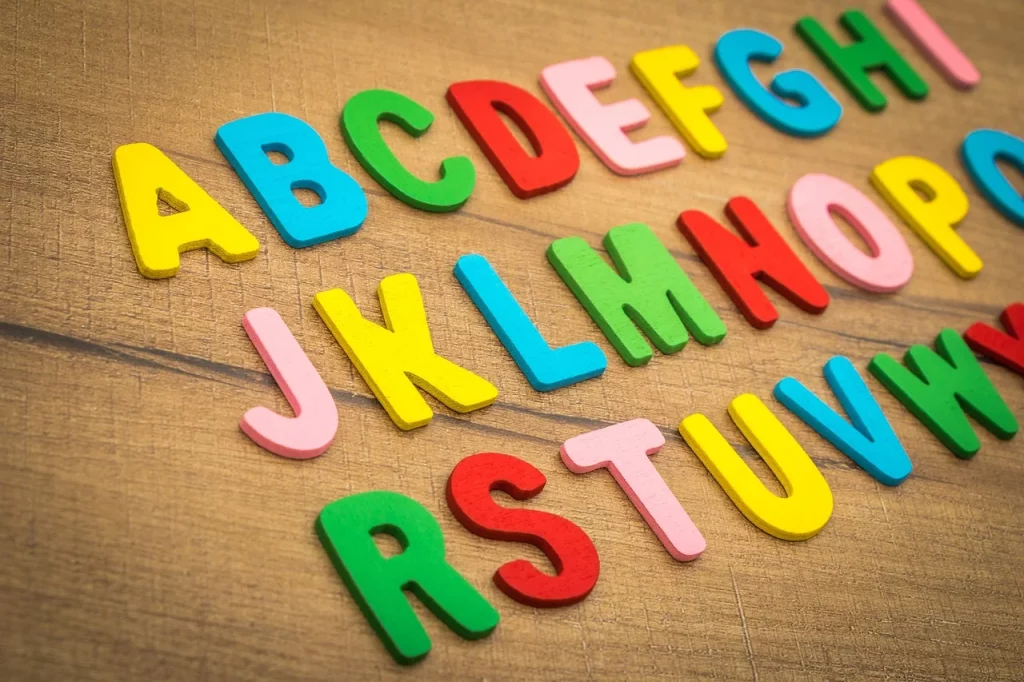Embarking on a journey through the rich and diverse landscape of the English language is like opening a treasure chest of history, culture, and endless quirks. Have you ever wondered about the origins of the words you use every day or the oddities that make English such a unique and sometimes baffling language?
We are about to dive into an ocean of intriguing details and fascinating anecdotes that reveal the true character of English. This article is your passport to understanding the intricacies of a language that has evolved over centuries, influenced by invasions, literary geniuses, and the relentless march of technology.
English is a funny language; that explains why we park our car on the driveway and drive our car on the parkway.
Jerry Seinfeld
English Language Facts
In this exploration of the English language, your attention to detail is important. At the article’s end, I created a quiz, offering you the chance to demonstrate your expertise. Read with focus, and let your knowledge shine.
- English is the third most spoken native language in the world, after Mandarin Chinese and Spanish.
- The most commonly used letter in English is E.
- Shakespeare added around 1,700 words to the English language.
- “Go!” is the shortest complete sentence in English.
- English is the official language of the skies, meaning all pilots have to identify themselves and speak in English.
- The longest word in English without a vowel is “rhythms“.
- About 4,000 new words are added to the English dictionary each year.
- The word “set” has the highest number of different meanings in English.
- “S” is the most common starting letter for English words.
- English is a Germanic language, influenced by Old Norse and Norman French.
- The only word in English that ends in “mt” is “dreamt“.
- There are more English speakers in China than in the United States.
- The first English dictionary was written in 1755.

- “Alphabet” is derived from the first two letters of the Greek alphabet: alpha and beta.
- More people in the world have learned English as a second language than there are native speakers.
- The dot over the letters ‘i’ and ‘j’ is called a “tittle“.
- “Uncopyrightable” is the longest English word that can be written without repeating any letters.
- English is the official language of 67 countries.
- The oldest word in English is “town“.
- There are more synonyms for the English word “drunk” than for any other word.
- The first known use of the word “hello” was in 1827.
- “Queue” is the only word in English where removing the last four letters leaves the same sound.
- The word “bride” comes from an old Proto-Germanic word meaning “to cook”.
- About one new word is added to the English language every two hours.
- “Goodbye” originally comes from the phrase “God be with ye”.
- The longest word in English is 189,819 letters long and refers to a distinct protein.
- The word “swims” upside-down is still “swims”.
- There are only four words in the English language that end in “-dous”: tremendous, horrendous, stupendous, and hazardous.

- English is the most widely taught second language in the world.
- The first book ever printed in English was the “Bible“.
- “Month“, “orange“, “silver“, and “purple” are words that do not rhyme with any other word.
- The word “checkmate” in chess comes from the Persian phrase “Shah Mat,” meaning “the King is helpless”.
- There are more words in the English language than in any other language.
- “E” is the most commonly used vowel in English words.
- Approximately one new word is added to the English language every two hours.
- The longest one-syllable word in the English language is “screeched“.
- Many English words have changed their meanings over time, for example, “nice” used to mean “silly”.
- The first English-language book to use punctuation was printed in 1476.

- “Strengths” is the longest word in English with only one vowel.
- The word “alphabet” comes from the first two letters of the Greek alphabet: alpha and beta.
- The word “bookkeeper” is the only unhyphenated English word with three consecutive double letters.
- English is the most widely used language on the internet.
- The word “byte” is a contraction of “by eight”.
- “Underground” is the only word in the English language that begins and ends with the letters “und”.
- “I am” is the shortest complete sentence in the English language.
- The first English dictionary was published in 1604.
- “Typewriter” is the longest word that can be made using the letters only on one row of the keyboard.
- About 80% of the information stored in the world’s computers is in English.
- The word “girl” originally meant a young person of either sex. It wasn’t until the beginning of the 16th century that it was used to refer specifically to a female child.
- English is the official language of the air. This means that all pilots must speak English on international flights.
English Language Myths

I hope you enjoyed all these interesting facts about the English language, because now it’s time to separate the myth from the truth.
- English is the Most Spoken Language in the World
While English is widely spoken, it’s not the most spoken language. Mandarin Chinese holds that title, with over a billion speakers. English is often learned as a second language, contributing to its global presence. - English Grammar is Uniform and Unchanging
English grammar is diverse and constantly evolving. Different regions have their own grammatical quirks, and what’s considered ‘correct‘ English can vary over time. Language is a living thing, always adapting! - The USA Dictates the Rules of English
American English is just one variety. British, Australian, and Indian English, among others, have their own rules and vocabulary. English isn’t owned by any one country; it’s a global patchwork of dialects and accents. - Older Forms of English are More Correct
There’s no ‘pure’ form of English. Old English (spoken until the 1100s) was vastly different. Language isn’t about correctness; it’s about communication. Modern English is just the latest version of an ever-changing language. - English Spelling is Logical and Phonetically Based
English spelling can be confusing! It’s a mix of influences from other languages and historical changes in pronunciation. Words like ‘knight‘ and ‘know‘ have silent letters that hark back to older pronunciations.
No products found.
English Language Quotes

The English language, a vast and intricate mosaic of linguistic history, continues to captivate and inspire. Here are my favorite quotes about it. If you have more, let me know in the comments so I can add them to the list.
English is the easiest language to speak badly.
George Bernard Shaw
Shaw comments on the simplicity of acquiring basic English skills but implies the difficulty of mastering the language.
In English, every word can be verbed.
Calvin (from Calvin and Hobbes by Bill Watterson)
This quote playfully observes how in English, nouns can often be turned into verbs, showcasing the language’s flexibility.
America and England are two countries separated by a common language.
George Bernard Shaw
Shaw humorously notes the differences in American and British English, despite being the same language.
The English language is nobody’s special property. It is the property of the imagination: it is the property of the language itself.
Derek Walcott
Walcott emphasizes the universal ownership and creative potential of the English language.
English is a language that lurks in dark alleys, beats up other languages, and rifles through their pockets for spare vocabulary.
James Nicoll
This quote humorously characterizes English as a language that borrows and incorporates elements from many other languages.
English Language FAQ

Welcome to the FAQ section. This is your last piece of information before the quiz. Read carefully, and don’t disappoint me.
- Why is the English Language important in education?
English is a global lingua franca, which means it’s a common language for speakers of different native tongues. In education, it’s essential because it opens doors to a vast array of resources, literature, and scientific research. Most international academic publishing is in English, and it’s often the language of instruction in many universities worldwide. - How was the English language created?
English is a rich tapestry of influences and evolution. It originated from the Anglo-Frisian dialects brought to Britain by Germanic invaders and settlers from what are now the Netherlands, Germany, and Denmark. Over centuries, it was shaped by various factors, including the Viking invasions and the Norman conquest of 1066, which added Scandinavian and French influences. - Is the English language hard to learn?
The difficulty of learning English can vary greatly depending on your native language and linguistic background. For speakers of languages with similar roots, like German or Dutch, English might be easier to learn. However, for those from very different language families, such as Asian or African languages, it may present more challenges. - How has the English language evolved?
English has constantly evolved over the centuries. Old English (450-1150 AD) was significantly different from what we speak today. The Middle English period (1150-1500 AD) saw changes in grammar and vocabulary, partly influenced by the French. The Early Modern English period (1500-1800 AD) included the standardization of spelling and grammar, and the Late Modern English period (1800-present) has seen the language expand globally, absorbing words from many other languages. - Which English language test is easier?
The perceived difficulty of an English language test can depend on your strengths and preferences. The TOEFL and IELTS are the most popular tests. TOEFL is often considered better for those comfortable with American English and multiple-choice questions. IELTS might be preferred by those comfortable with British English and a mix of question types, including short answers and essays.
No products found.
English Language Quiz

Buckle up for the English Language Quiz! Warning: Failing to answer correctly might result in your autocorrect forever replacing ‘your’ with ‘you’re’. Tread wisely!
English Language Merch
If you are a true fan of English language, then you definitely need to check out our merchandise. You can find T-shirts, hoodies, mugs, and tote bags for your favorite designs. Feel free to check out all the other designs in our shop.
Conclusion
This article has been a delightful stroll through the fascinating world of English language facts. Like a language detective, we’ve uncovered secrets and stories that bring words to life.
I had a great time researching all this information, so let me know. Which fact about the English language intrigued you the most, and why? I look forward to your reply in the comments.
17 Sources Used For This ArticleEnglish language History – Other Referats
History of the English language – Pennys Poetry
What Rhymes? – Pain In The English
Word Trivia – Steve Laube
English: Fun Facts – Azhariah Kamin
Interesting Facts About English – VK
Interesting Facts about Words – Grammar
Longest words in English that can literally scare a reader – Italki
Interesting Facts about English – English Club
English Language Trivia – One Mans Blog
Strange things you (maybe) didn’t know – Rtac
Fast Facts about the English Language – Day Translations
Alpha, Beta, What’s Next? The Greek Alphabet Explained – Dictionary
Fun with English by Mikie Metric – Say It In English
Bet you didn’t know – Kids Niehs
Alphabet – Britannica


